From the Principal
We are back.

From the Principal
We are back.
Dear IPS Community,
Based on advice from the Victorian Chief Health Officer, schools in Victoria returned to face-to-face learning and teaching for all students from Wednesday 28th July 2021. This means all students are expected to attend our school on-site.
To keep our school safe, we have introduced some important operational changes. This includes:
Drop off and Pick Up
MORNING
Drop off in the morning has proven effective with all children disengaging from parents at the gate and coming into school. This will remain the same.
AFTERNOON
Children will be picked up from the following gates on the attached map.
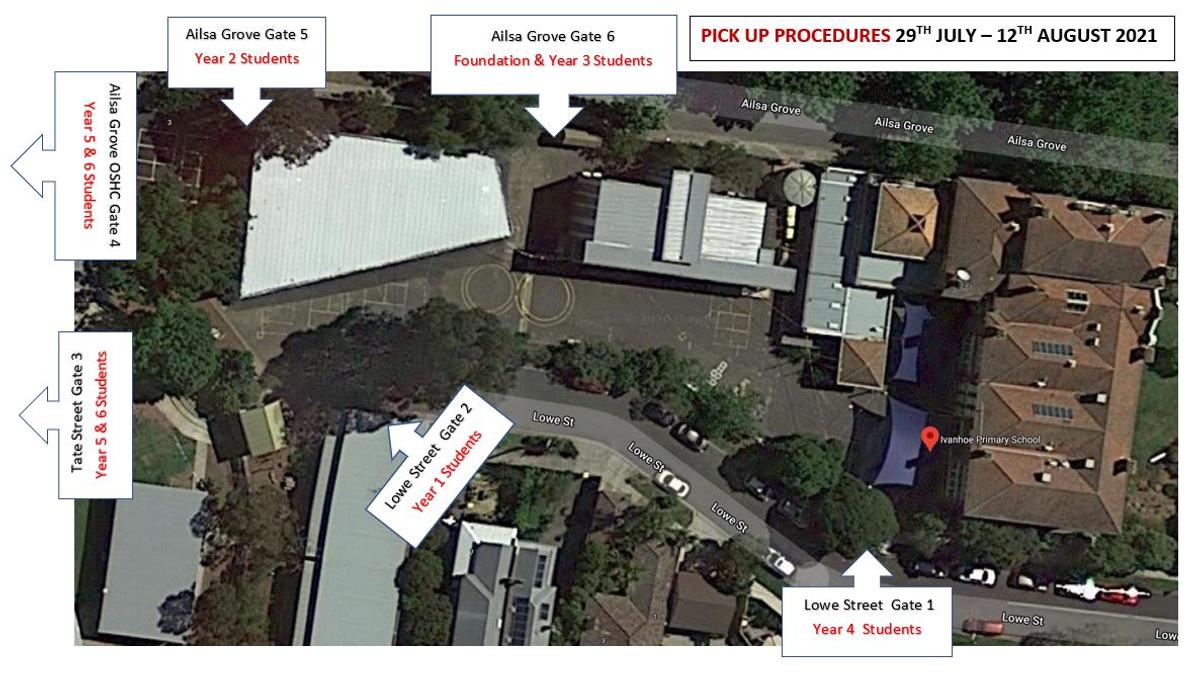

Exceptions are:
*Older siblings can leave at the younger sibling’s gate.*
*Other arrangements as discussed with the teacher and agreed to by the Principal.
We will NOT be staggering dismissal at this time.
PLEASE ENSURE YOUR CHILD KNOWS WHICH GATE TO MEET YOU AT.
If you have questions please phone the school 94991880.
FACE MASKS
There has been no change to the face mask advice, which will continue to apply to all school settings, including any Outside School Hours Care (OSHC) programs:
Primary school students are not required to wear face masks when at school, or when attending an OSHC program.
Thank you for your continued support during this time. As always, please don’t hesitate to get in touch with any feedback or queries.
PARENTS AND CARERS ON SCHOOL PROPERTY
Parents / carers are not to enter the school grounds without an appointment made through the school office.


Today Mrs Wright and I visited classrooms to see the Students of the Week. These are students who were recognised for living the schools values of Confidence, Persistence, Respect, Resilience and Independence. While all our students can be commended for their work and attitude during remote school it's lovely to be able to see their smiling faces signal the pride they have in themselves.
On another note, a wonderful nurse from Cairns hospital who looks after sick people and enjoys sewing teddies has sent IPS a Teddy who doesn't have a name. Today I introduced Foundation to the teddy who is going to be a writing stimulus for them.
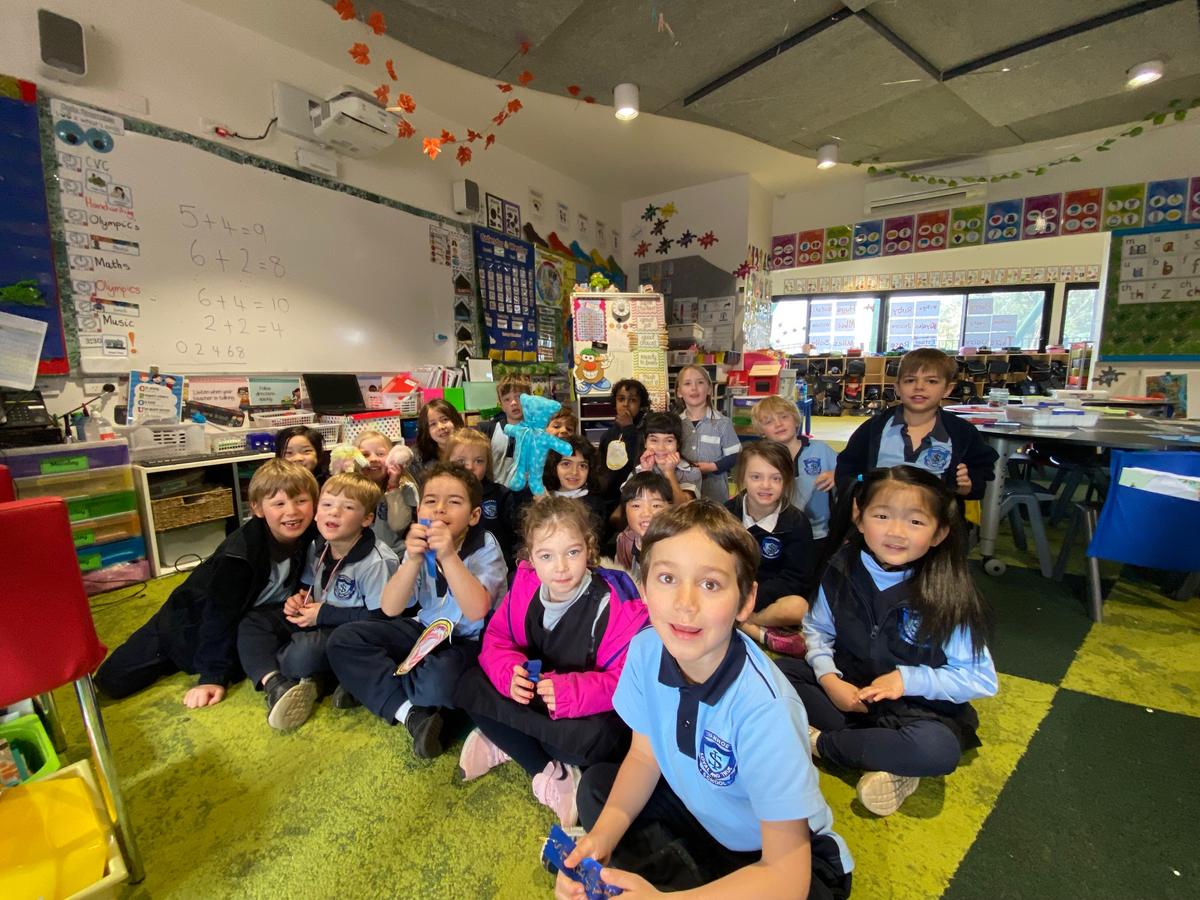
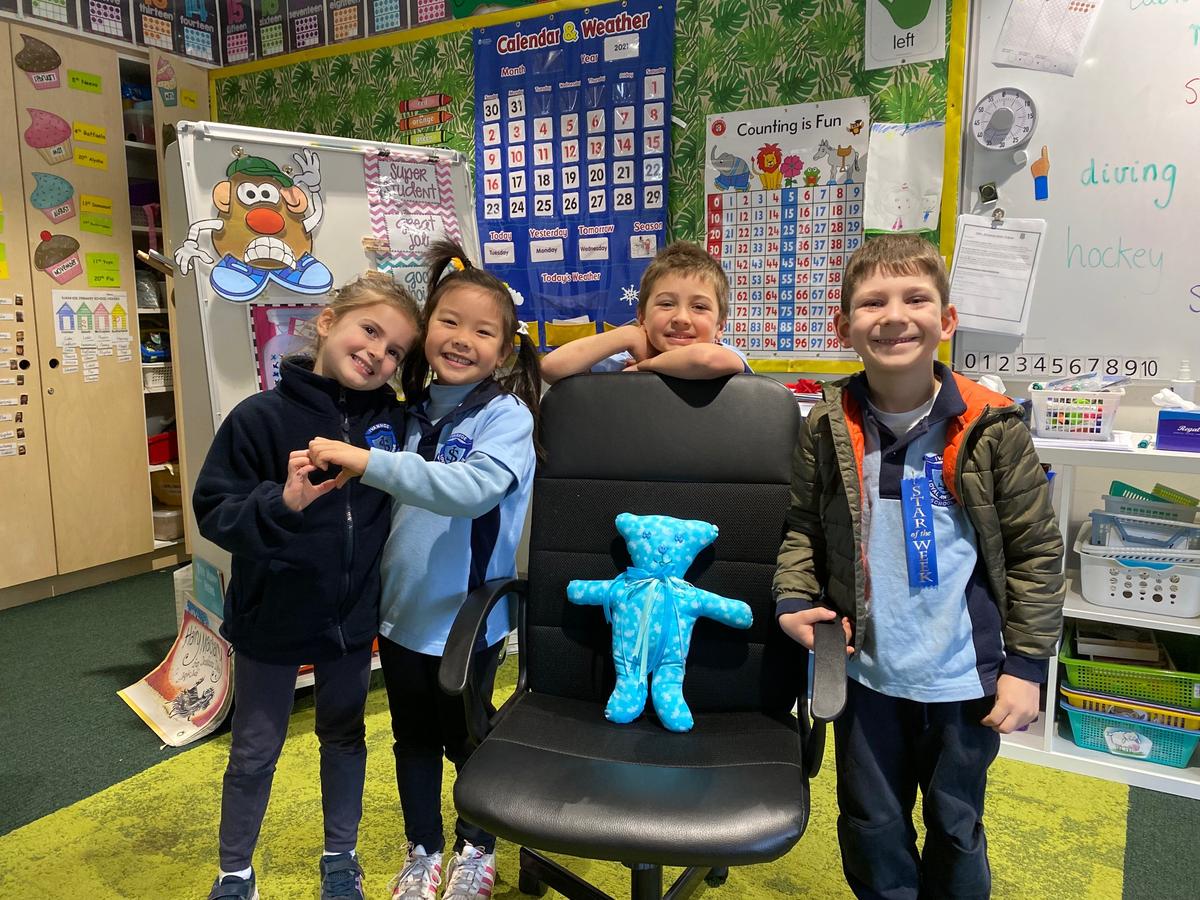
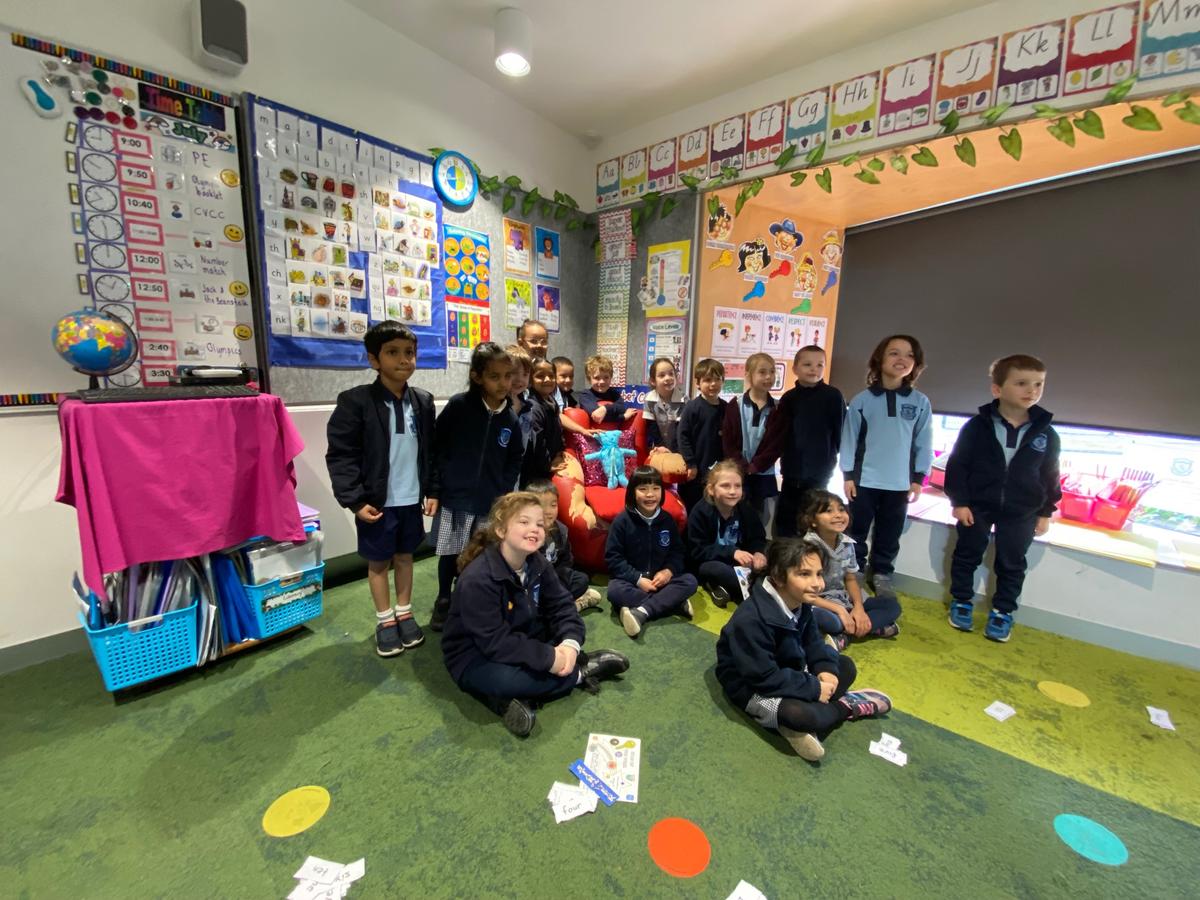





It is never ideal but traffic has noticabley increased in Ailsa Grove. Perhaps it's the restrictions and the use of different gates but we are asking you to leave your car at home and walk to school if you can. An engine idling for significant periods of time is bad for the environment and bad for lungs. Please consider your pick up and drop off habits and help us manage the entry and exit of nealy 600 young people everyday safely and healthily.
As a result of COVID 19 the CHT is a truncated program is available through the schools website and linked below.
We are pleased to say that classroom helpers will be resuming in Term 3 for grades Foundation, One and Two. In accordance with Covid-safety measures, training for this program will occur online this year. If you are interested in helping in the classroom and have not completed the training in the past you will be required to read through the attached PowerPoint and sign an agreement.
An optional half hour web-ex meeting will follow once restrictions have eased to clarify any points and to answer your questions. Please note if you have previously completed the training program no further steps are required to assist in the classroom. We look forward to seeing you back at I.P.S!
Parents can enjoy the opportunity to share in the educational development of students with the support and direction of teachers, by participating in the Classroom Helper program.
The Classroom Helpers' course is a component of the Victorian Early Years Literacy Program and is designed to support the work of parents, helpers and aides who assist in classrooms. The program runs for three consecutive weeks in Term 1 and is presented by teachers from the school.
Topics include:
Click here to access the CLASSROOM HELPER TRAINING
Your class teacher can advise when it is safe to come on site and how you can be a classroom helper.
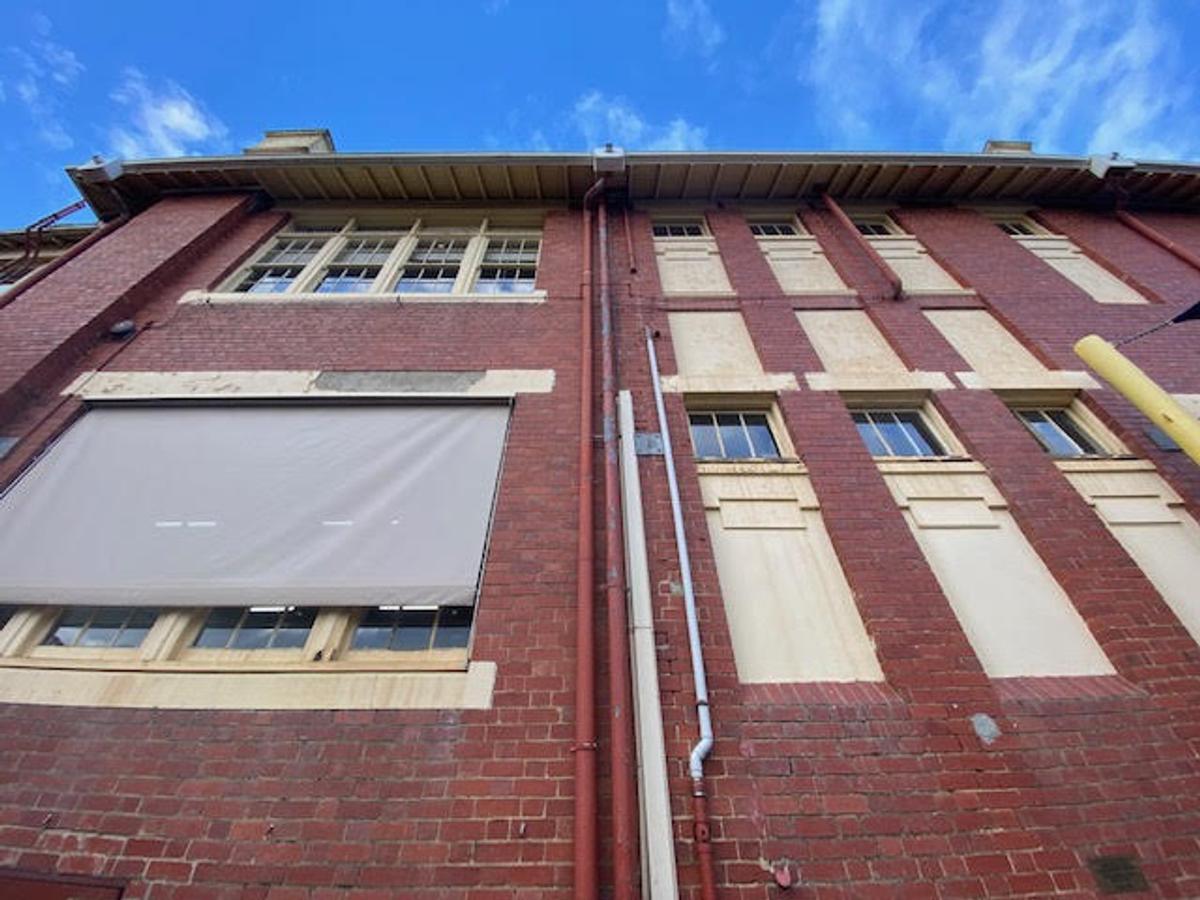

On Monday the refurbishment of the west facing facade of the Waterdale Rd Building begins. This will see much of the brickwork repaired, cement re-rendered and all the windows replaced or repaired.
The end result will be worth the inconvenience of seven weeks of temporary fencing at the top end of the school.
The inconvenience to classes will be kept to a minimum.
At times parking and street access will be affected, but traffic management controls will be in place and where possible I will keep you informed of major restrictions.
New families, or families of current students with siblings, intending to enrol a new student at our school for next year are encouraged to enrol now! It is only by knowing our student numbers now that we able to staff the school effectively. We are already workforce planning for next year so please make your enrolment count and contact the school office as soon as possible. This applies to new students only.
Dont worry, we are looking for a new date for the Disco. The Trivia Night is planned to go ahead on the 4th of September. Reserve your seat or table through the office.
The incredibly popular Father's Day Breakfast is scheduled for the morning of Thursday 2nd September. So dads, step dads and or significant males please save this date.
Please see the flyers on the Community Page for more information as it becomes available. The PFA is looking forward to seeing you all on as many occasions as possible.
Our wonderful PFA coordinator leaves IPS at the end of the year along with her son so we are looking for someone(s) to take the reins. If this is, or might be you, please email Jo Anderson on joanne.anderson@education.vic.gov.au or phone me at school for a chat.
I was looking for some literacy tips to help your child(ren) and came across the following :
Talking with your child (approx F - Year 2)
Regularly talking and interacting with your child extends their language and listening skills and helps grow their confidence with language.
Include your child when discussing everyday activities such as grocery shopping, gardening, cooking dinner, collecting mail from the mailbox, doing housework, and travelling in the car or bus.
Outings can also provide a world of new vocabulary. Discussions during outings can enrich your child’s understanding of the world. Outings might include going to the park, the zoo, a shopping centre, museums, libraries and art galleries.
Other fun activities can include:
Storytelling is a great way to extend your child’s speaking and listening skills, and to expand their memory and imagination. Either you can tell the story, or you can encourage your child to tell the story.
Storytelling might be about:
Here are some tips to start your storytelling:
Talking with your child (approx Year 3 - Year 6)
As your child moves through primary school, they will speak with greater fluency and with a greater knowledge of the world.
Some tips to foster more fluent speaking include:
As your child gets older, they become more aware of news and current events. Discussing news and current events can enrich your child’s understanding of the world.
Questions are an effective way to encourage your child to think critically about an event and can help foster empathy. Questions also help your child to develop oral fluency when discussing social issues.
Questions you might ask when discussing a news story or current event include:
Some other activities to develop your discussion:
As part of our commitment to learning catch up and extension from next week there will be a page dedicated to tips to helping your child learn. Not all will be relevant to your child or your circumstances, but if you find just a few ideas to help you help your child engage with their learning then it will have been worth it.
Like and follow us at www.facebook.com/IPS2021Fair
Please read the School Fair News page in this edition of "Inside Ivanhoe".
Remember it’s normal to feel stressed, worried or anxious during times of uncertainty so be kind to yourself. See you next week.
Mark Kent
Principal

